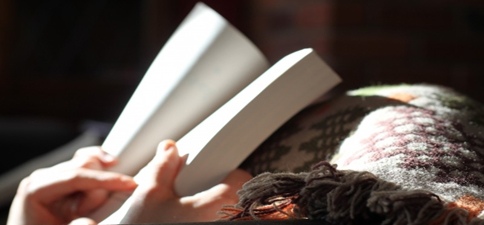So This Happened. As you can imagine, I was not amused. Several other writers (like Zoe York, far more prominent than I am) were not amused either.
CONTENTS
Business as Usual
Then in a business proposal I saw this as a list of genres:
- Mystery
- Thriller
- Crime
- Speculative
- Literary
- Horror
- Paranormal
- Historical
- Trashy Romance
Trashy romance. I can’t tell you how many times I’ve heard that phrase. Or sappy romance. Or just a romance. Stupid, silly, cheap romance too. I expect to hear those phrases from people outside the romance world. But I also hear them – as in this case – from writers of romance.
“Here’s a stupid romance, and it’s perfect for you,” said no romance writer ever. Except when they do.
Trashy, Stupid, Silly, Cheap
I hear the screeching brakes. But Karin, you say, I would never tell a reader she’s stupid! But what else does calling the books she likes silly, sappy, cheap and trashy add up to, when that message is repeated over and over?
I admit to being guilty myself. The “just” word has come out of my mouth in the past. I have, once upon a time, described some of my books as “trashy” without at least adding “deliciously.” I was young.
Clearly, it didn’t occur to the National Post Books editor that, in celebration of Valentine’s Day, readers who love romance novels and find the stories validating and mesmerizing – stories from Lisa Kleypas, Nora Roberts, Diana Gabaldon and even little old me writing for lesbians – might be insulted to see every single one of those authors called frauds and panderers. To see all romance readers, including themselves, described as embittered women who read badly written books for the sex.
It’s Easy to Write Romance, So Why Did I Fail?
That a non-genre writer – expecting quick success while self-publishing an unedited, badly marketed romance novel – could three months after her book’s release post a national exposure op-ed about her inability to meet the low standards that desperate women want is par-for-the-course, yet gobsmacking. Romance remains an easy punchline. That people think it’s easy to write romance is commonplace. Literary writers don’t want their love stories to “be small.” Prominent male writers scorn the romance label when that’s exactly what they’re writing.
Silly, trashy, sappy, cheap – any wonder why many women keep their romance reading a secret? Then there are the readers who were for years told that reading romance was anti-feminist too. Writers who are feminists now write what they want to see in romance, including me. The stigma, however, seems to remain. Women should be reading something else.
Romance has Tropes! Tropes are Bad!
Romance is not alone in having tropes. Romance readers cherish many of them. The same way a mystery fan loves amateur detectives who find a dead body on every vacation, or murderers who talk so long that their plans are foiled. The same way a space opera fan loves a crew that can recalibrate their way out of every scrape. But the criticism of romance conflates “trope” with “cliché” while other genres rarely receive the same dismissal.
Romance has Sex! Sex is. . . Wait
Romance is certainly not alone in selling books with sex either. Horror and spy novels don’t have sex, sometimes graphic and prurient? From vampire blood-and-lust lettings to Bondesque seductions? There are romance novels that don’t include explicit sex, yet accusations that it’s all soft-core porn don’t stop, especially since, you know, Fifty Shades of Grey is exactly what all romance novels are like. Romance is blamed for filling women’s minds with unrealistic views of the world and relationships. As if reading the white male literary canon hasn’t always given women unrealistic depictions of the world, as Jennifer Crusie responded to academics who called romance anti-woman after reading next to none of it.
There Are So Many Bad Romances!
Romance is not alone in having a marketplace flooded with unedited, first-draft books that fail to measure up to a genre’s actual successful writing. Knock-offs of Game of Thrones abound, for example. Yet could one hold up a poorly written, derivative fantasy book and get a national platform to ridicule ALL fantasy writers and blame the readers for their low expectations? Feel free, anyone, to comment with an example.
There is dreck and brilliance in every genre of commercial fiction, and in literary writing as well. But romance stands out for being consistently judged by the worst of its ranks.
So why did the National Post editors think it okay to “humorously” dismiss the romance genre and the women who read it? To hold up, as so many do, a single example from the entire field as if it represents all? Here’s my answer formulated decades ago and I have yet to find a reason to update it: Because writing that focuses on what women think and feel doesn’t rate respect. That puts romance, mostly written by women for women, at the bottom of the barrel.
Written By Women for Women
Dismissive attitudes toward women writers regardless of what they pen are so common as to be cliché. What women want to read and what women write – especially if for other women – are presumed to be less interesting and lower quality, end of discussion. When it’s romance or chick lit, the overweening presumption is that they’re all the same, yet romance novels hold incredible variety within the established genre rules.
Jodi Picoult spoke out about the lack of reviewing of commercial fiction by women, only to be dismissed as a lesser writer with unsubstantiated self-interested whining. Jennifer Weiner has been pointing out for five years that similar novels by men and women receive entirely different review opportunities. Both women’s assertions were validated in the number-crunching again and again.
So Why Do We Feed the Romance Hating Bonfire?
With a literary world eager to pile on, I think as romance writers we need to take some of the blame for the perpetual condescension toward what our readers love – our books – and therefore toward our readers. We need to stop thoughtlessly echoing words like cheesy, sappy, trashy, cheap and silly as if they are all there is to say about our work.
We need to stop saying things like, “It’s not just another romance. It’s better than that.” Another phrase I have heard more times than I can count.
I am echoing the keynote I gave to the very first Golden Crown Literary Society convention: No one should be embarrassed that she reads romance. For many reasons and undeniably this: She reads because the women are heroes of their own lives. Newsflash from the Office of Obvious.
Almost every writer of lesbian romance that I know writes for the very same reason: to make women the heroes of their own stories. Why would we ever be less than proud of that?

